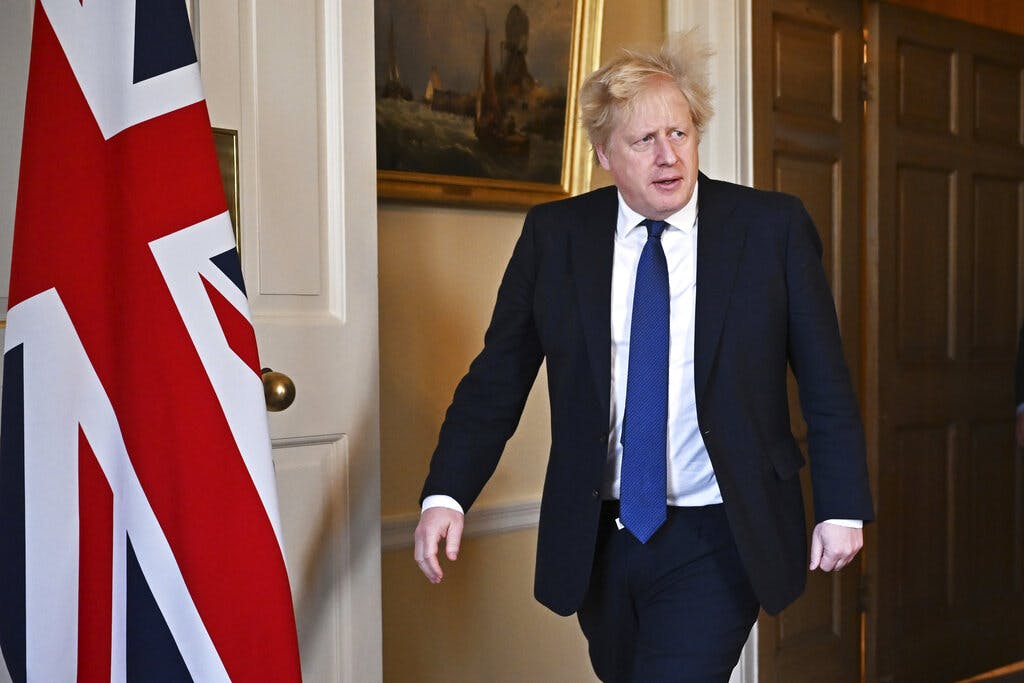Panic Over Boris Johnson
The erstwhile premier’s return would ensure Brexit sticks.

“Rage-inducing, blood-boiling” is how the Guardian’s Gaby Hinsliff sees the prospect of Boris Johnson’s entry into the race to replace Prime Minister Truss. A “comeback would be farcical,” the Financial Times sniffs. “Seething” headlines the Washington Post. The Times calls the idea “highly risky.” The trans-Atlantic establishment is in quite a swivet over the possibility of Mr. Johnson’s return, one way Britain might decide upon to ensure Brexit sticks.
The swivet underscores the danger of the Remainers, who oppose British independence from Europe, despite Mr. Johnson winning his “colossal mandate” in the last election to “get Brexit done.” This faction wants a new referendum on Brexit, but in the interim, will settle for new elections. “The British people,” the FT writes, “must now choose their political future.” Labor’s leader, Sir Keir Starmer, is pushing for a general election.
Labor leads in the polls, but could have an ulterior motive for early elections. As the Daily Mail’s Peter Hitchens warns, Britain’s next election could mean the extinction of the Tory party and “permanent liberal elite rule.” That’s because he sees Labor teaming up with the Liberal Democrats after the next election to forge a permanent majority by replacing the traditional method of electing MPs with “proportional representation.”
That means assigning Parliament seats based on the popular vote percentage, as opposed to personal victories in individual districts. Labor is known to favor this method — it is used in Scotland and Wales’ “devolved” parliaments. If it comes to Westminster, Mr. Hitchens observes, it will freeze out the Tories, who wouldn’t have won their majority in Parliament in the 2019 vote under proportional representation, the Electoral Reform Society says.
There’s no need for new elections, either in law — a vote isn’t required until 2024 — or in principle. Mr. Johnson’s supporters, the New York Times reports, say his “landslide election victory in 2019” means he still “has a mandate to lead.” That mandate arose from his ability to rouse the nation with a vision of the “sunlit uplands” of freedom that awaited an independent Britain if it cast aside the “anti-democratic absurdities of the EU.”
It is, in our estimate, Mr. Johnson’s ability to so well articulate the logic of Brexit that makes him the target of the kind of establishment rage that is greeting the possibility that he might return to the fray. It leads us to wonder what exactly about British independence so provokes the ire of the left. Die-hard Remainers like Lord Heseltine, who cheered “if Boris goes, Brexit goes,” seem to see the prospect of British independence as sinister.
Students of history, like Mr. Johnson and Nigel Farage, see why British independence matters. And while the Times blames Brexit for Britain’s “political convulsions,” an astute observer, Richard Littlejohn of the Daily Mail, says the trouble stems from not completing Brexit soon enough: “We’ve ended up with a palace coup staged by Remainers, determined to keep us in lockstep with the EU.” This is the cause of the panic over Boris Johnson.

